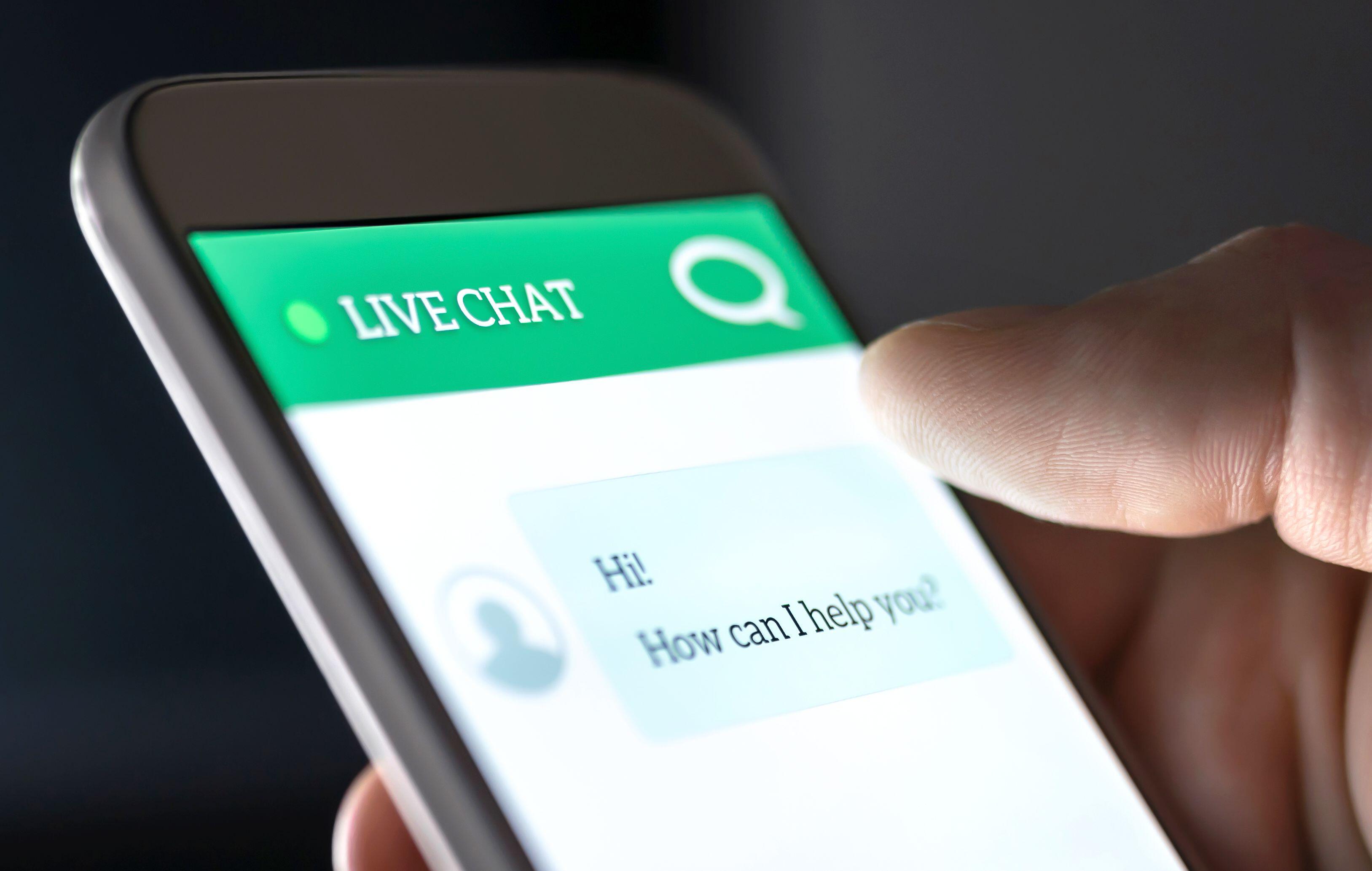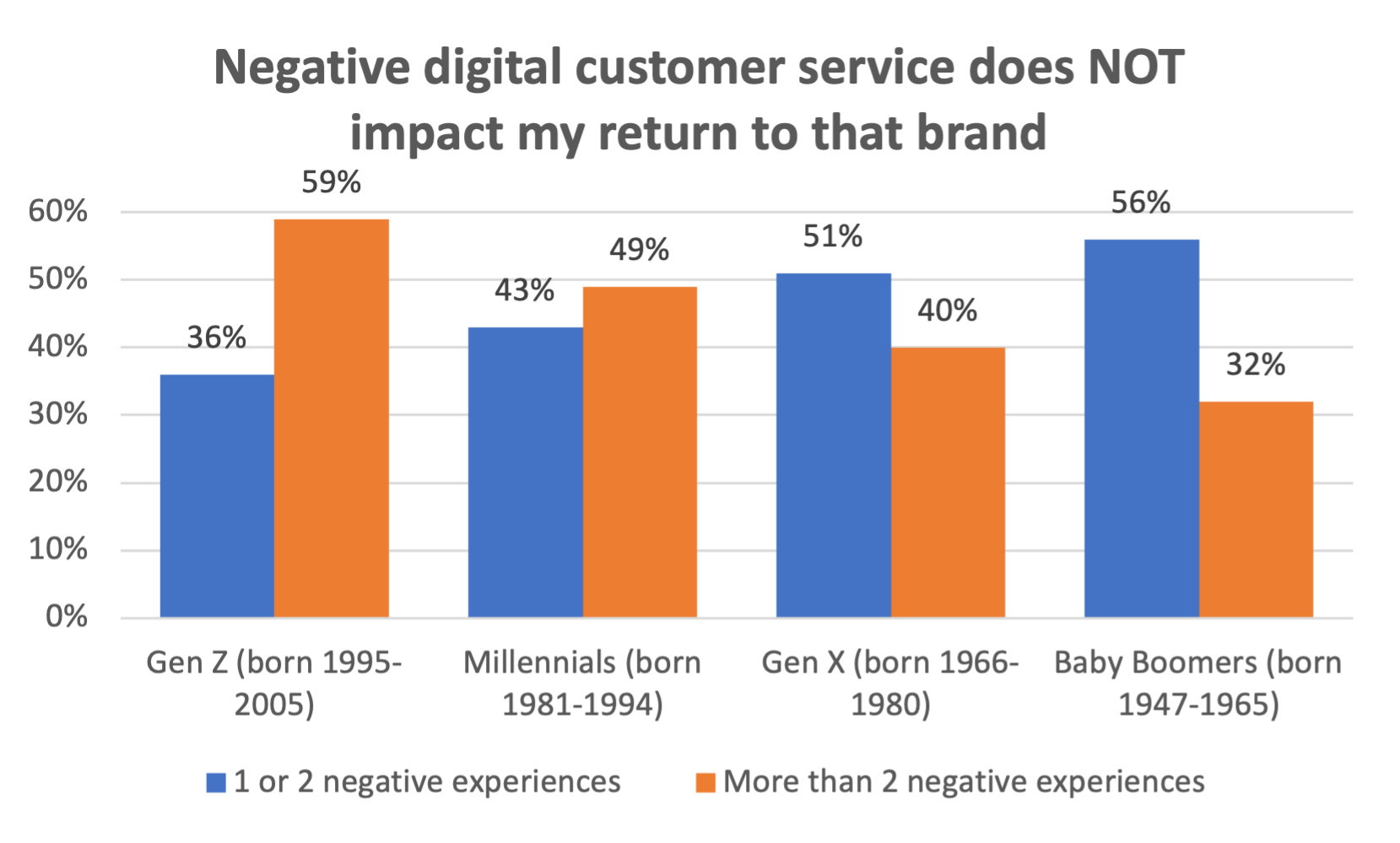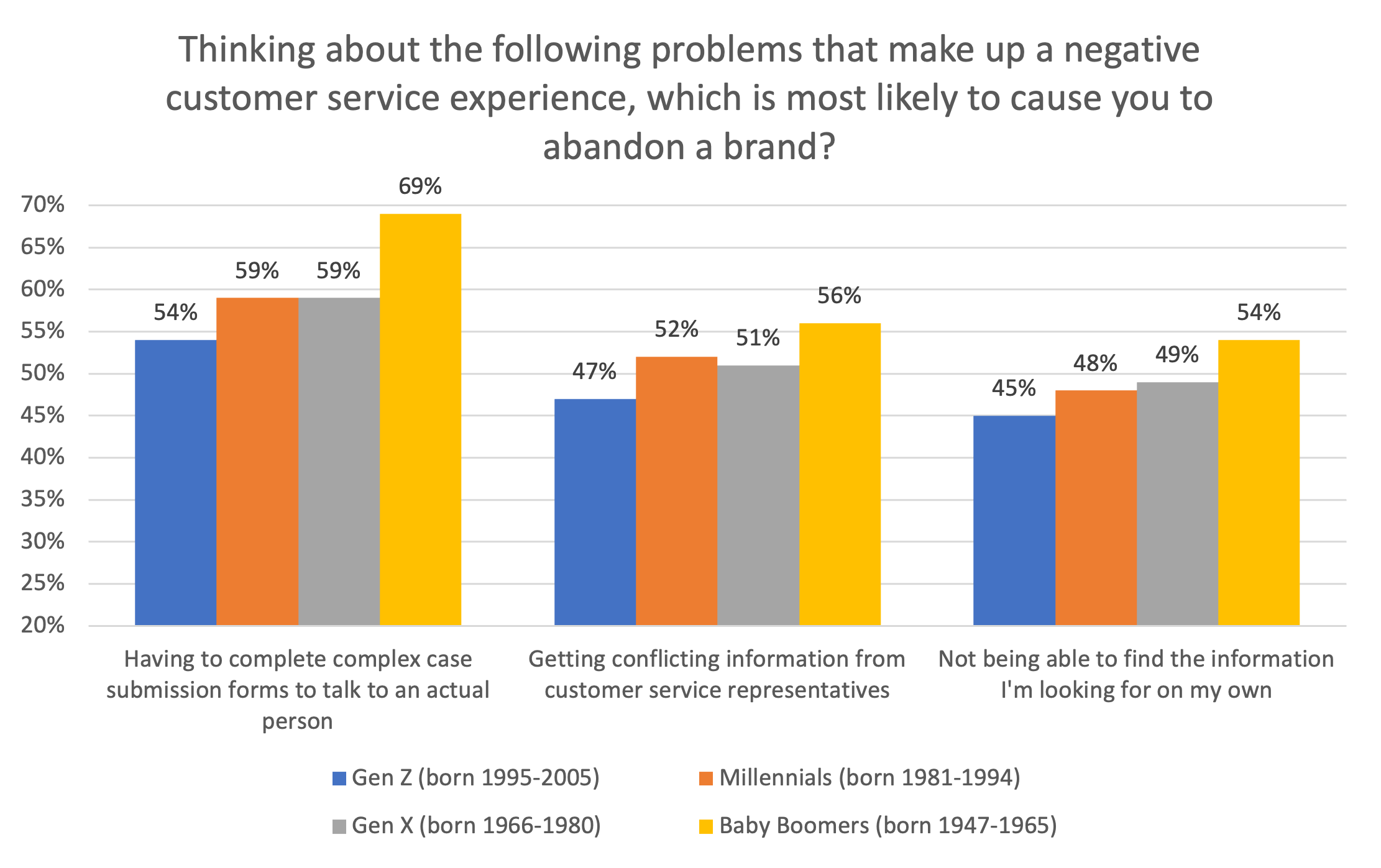Welcome to No Jitter's Number of the Month, where we dig deeper into the research and data that's shaping the communications technology industry. This month, we look at a report from Coveo which provides an AI-powered platform that provides ecommerce, customer service, digital workforce, and website search functions.
Coveo’s report found that 40% of Gen Xers and 32% of Baby Boomers will give a brand only three chances before abandoning it after a negative digital customer service experience – as compared to the more patient Gen Z (59%) and Millennials (49%). The nearby graph illustrates a more unsettling trend: Gen X and Boomers are more likely to abandon a brand after 1 or 2 negative digital customer experiences (and this customer base may be getting older, but there’s still a lot of ‘em!). By contrast, Millennials are caught in-between the older cohorts while Gen Z is comparatively the most patient.
Focus on this number of the month: 40%
That's the percentage of surveyed Gen Xers who will give a brand a third chance before abandoning it after a negative digital customer service experience. The number comes from an online survey of 4,000 adults across the U.S. and UK aged 18+ who use a computer as part of their work in companies with 250+ employees conducted by Coveo and research partner Arlington Research.. Responses were captured between January 12-25, 2023, and published in early June 2023 in Coveo’s Customer Service Relevance 2023 report.
Why?
No Jitter (NJ) spoke with Neil Kostecki, VP of Product at Coveo about this number – the 40% – and others related to improving the customer experience. Coveo has conducted this customer service relevance research for three years now, and each year the results have pointed to a generational difference.
“It seems like it would go the opposite direction – you’d expect that younger generations who are digital-first to have zero patience,” Kostecki said. “But what the research actually shows is they're willing to give more of a chance – maybe because they're more familiar with these technologies or they're more familiar with digital – while we tend to be a little more impatient.”
It is too soon to tell if this is a true generational difference – that their greater level of patience (as far as this particular research suggests) is encapsulated in Millennials and Zoomers – or if they will eventually come to behave more like the comparatively jaded Xers and Boomers.
What Coveo does on the service side of their business, at least in part, is provide AI-powered solutions for customer (self) service so that customers can quickly get the answers they need – which obviously is intended to help a company minimize the occurrences of those “negative self-service” experiences.
“We classify their cases and give them suggestions that might help before they submit a ticket,” Kostecki said. “We also pass all those insights to the agents so they can understand what the customer did. That way, they start from the context of what the customer’s already done.”
It’s You, Not Me
The nearby graph illustrates some of the survey’s findings about some problems often associated with negative customer service experiences: e.g., having to complete a long form before speaking with an agent, getting conflicting information and not being able to find the desired information on their own.
Looked at one way, the major pain point among these three reasons is the apparent frustration associated with reaching a live agent. Looked at from the generational perspective, 54% of Zoomers said they would abandon a brand after having to complete a long form versus 69% of Boomers. Neither is good per se, but Zoomers are comparatively more patient.
“What we're seeing is people abandoning a brand because the experience itself was complicated by too many steps,” Kostecki said.
NJ asked Kostecki for his thoughts around the use of chat and chatbots – whether they’re powered by generative AI or not. (Coveo’s beta program for its own generative AI-powered platform will finish in the summer of 2023.)
Kostecki said that Coveo’s customers have begun viewing deflection of customers to self-service options (chatbot or not) as a really bad customer experience.
“They want to get you to an agent quickly, and to the right one – and only one. That agent uses swarm channels where they go out, speak with a bunch of experts on the problem, and you get an answer quickly as possible,” Kostecki said. “If you’re interacting with a chatbot, you want to make sure they can talk to an agent anytime they want. We think we can even be more proactive and identify when the problem can’t be solved by self-service – sort of a ‘hey, don't waste your time,’ and get them to a live agent. I think that's the kind of experience customers really want.”
And maybe it’s that kind of customer service that will help companies avoid losing not just those impatient Xers and Boomers, but even the most tolerant of Millennials and Zoomers.
To Learn More, Read These
To learn more about the challenges associated with personalized customer experiences, check out:












